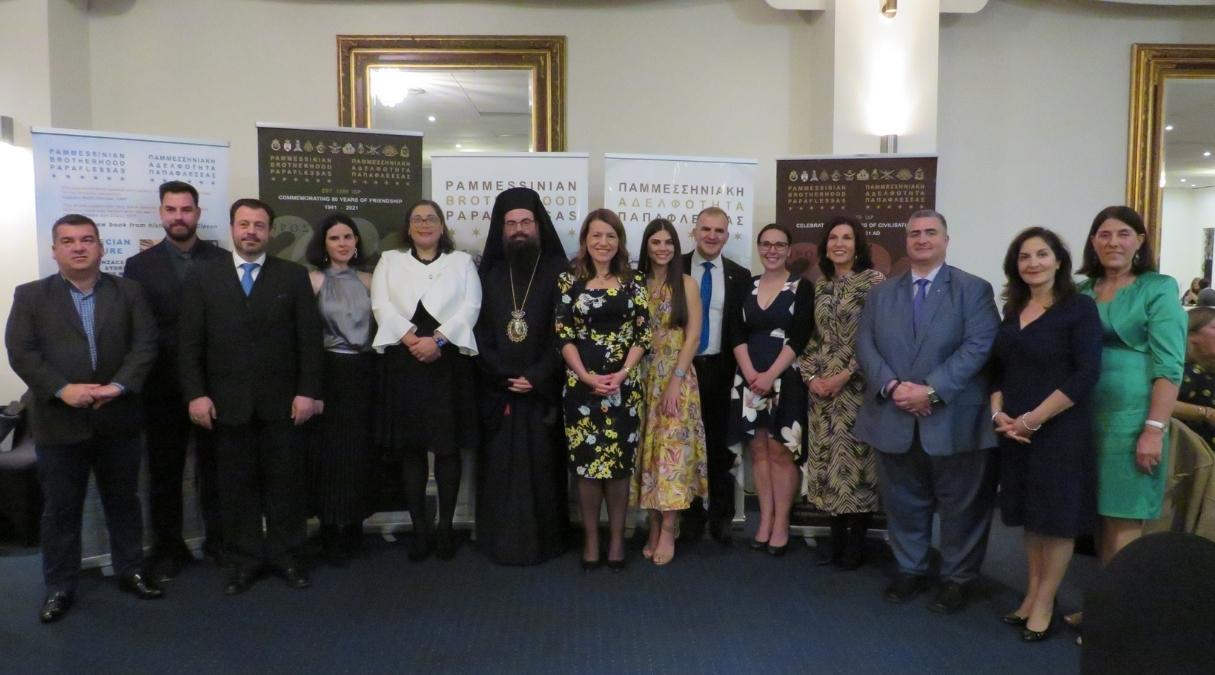By Mary Sinanidis
It was an eventful week for Messinians of Melbourne’s Pammessinian Brotherhood ‘Papaflessas’. It began with the announcement for the naming of a Thornbury laneway to Kalamata Place by Darebin Council on Monday and ended with its 63rd annual Dinner Dance to commemorate the 81st anniversary of the Battle of Kalamata and launch Jim Claven’s book “Grecian Adventures”.
The announcement gave attendees more reason to kick off their heels in celebration with Jenny Mikakos, the former minister of Health, leading the dance and drawing plenty of gratitude.
“The naming of a street anywhere in the world is not an easy task,” Mary Tsaganas, Papaflessas Public Relations spokesperson, said. “We are grateful to Ms Jenny Mikakos for her invaluable direction on this project. Without Jenny’s input this would not have been possible.”
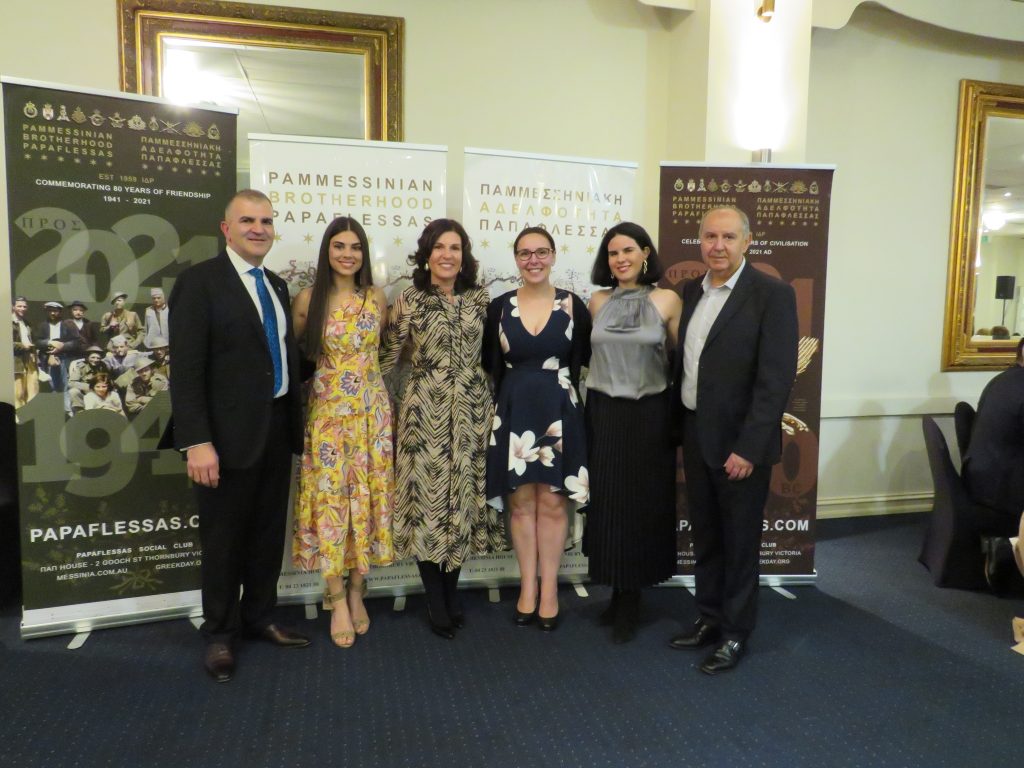
It was Cr Emily Dimitriadis, however, who fought in Council chambers for the idea. She told The Greek Herald that the naming of the laneway was “a lot of hard work and it was a team effort” which paid off after the idea had already been knocked back twice.
“The reasoning, I believe, was because it was not an Indigenous name,” Cr Dimitriadis said, adding that when she was voted in as a Councillor a year and a half ago, she resuscitated the idea for the Greek naming of an Australian street. “I brought it to a council meeting and, to be honest, it wasn’t fully supported at the time, but we just kept pushing it and the ‘Papaflessas’ club were supportive, and they kept pushing it as well.
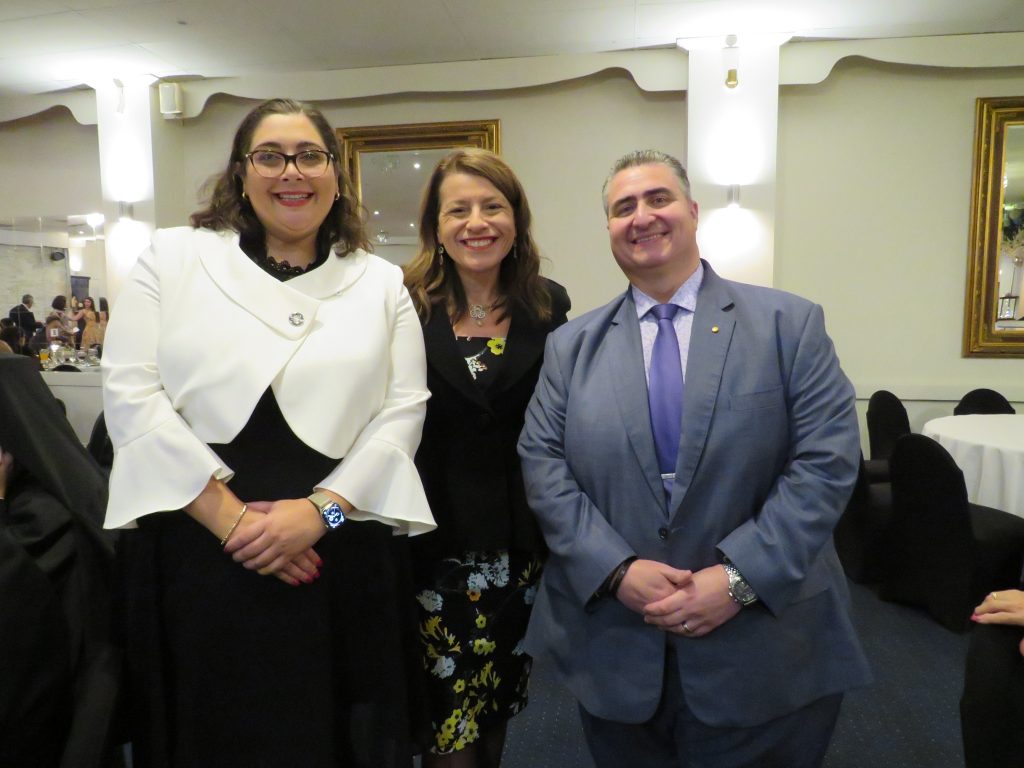
“Finally, after a lot of talking, a lot of submissions and a lot of people writing and saying how important it is for the Greek community, it was voted unanimously on Monday night. We made a strong point that migrants need to be acknowledged. We’ve contributed enormously to Darebin.
“Maybe other communities may come together and ask for their city to acknowledge them.”
Ms Mikakos said the new name would ignite feelings in Greeks and Australians alike. After all, it’s a symbol of something Greek settlers from the Peloponnese came and shared with those in their new home. “When we think of Kalamata, we just think of positive things. It is the olive, it is the oil, it is the state of Kalamata,” she said. “These are things mainstream Australian society recognises.”
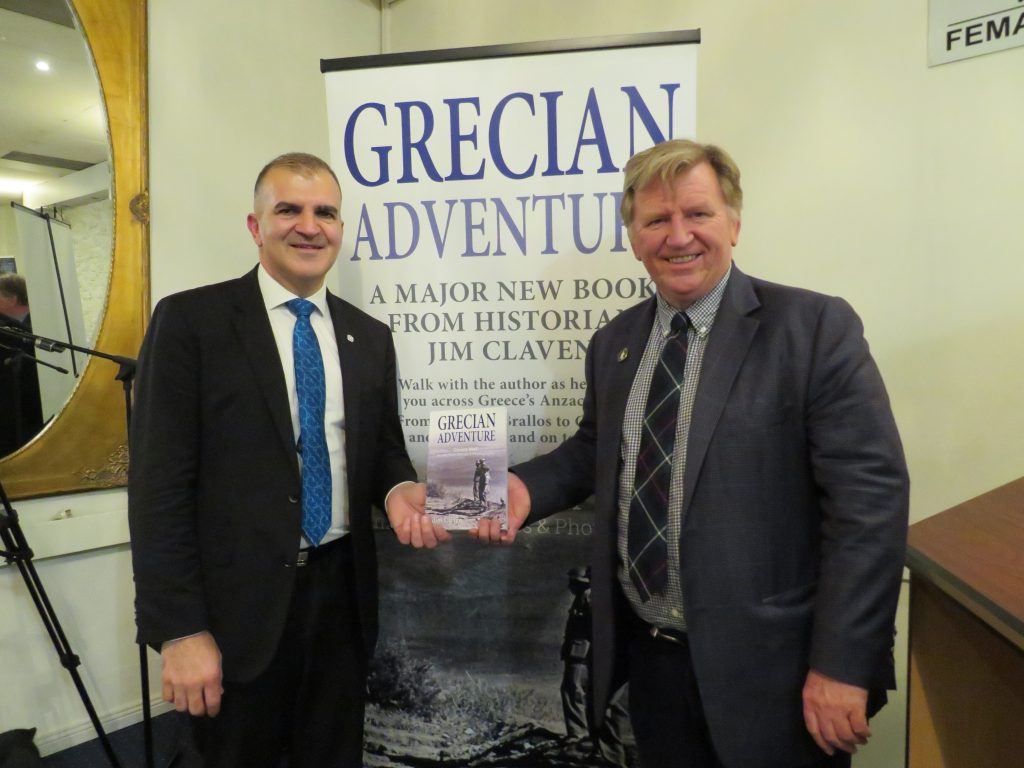
“People passing by Kalamata Place will feel proud that here, in our municipality, Hellenism has been recognised. It is a small acknowledgment of the efforts and participation of the Greek community of the municipality in this region.”
Greek Consul General to Melbourne, Emmanuel Kakavelakis, suggested that a grand opening be held with guests from Kalamata while Kalamata’s Mayor himself, Thanasis Vassilopoulos, addressed those present via an audio link from Greece.
Ms Mikakos said that during the opening she hoped for an event which would give residents in the area a true understanding of what Kalamata is about. She shared a brainwave she had that night while parking her car and stopping off to visit the newly named laneway before the dance.
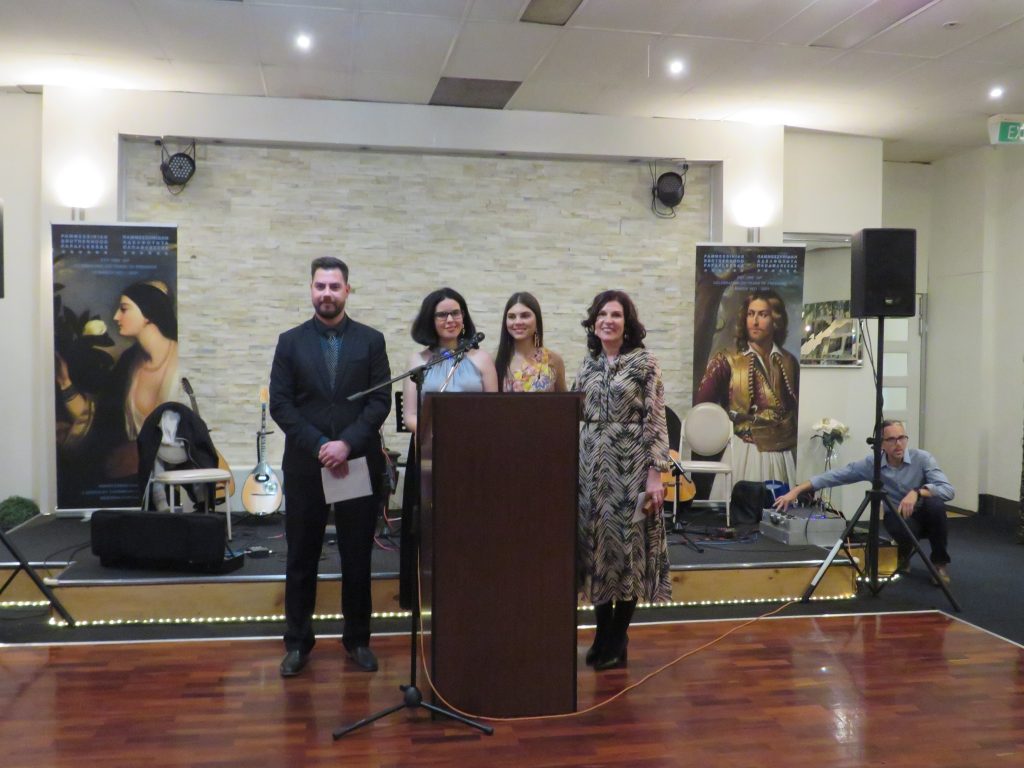
“That’s why I was late,” she said. “I thought it would be good to have a mural of something Greek outside the Papaflessas building. Olive trees, some Kalamata olives, some things that symbolise Messenia and Greece. I hope your syllogo (association) supports this so that a Greek work can be on the building and not just the street sign.”
Such a symbol would show the character of Kalamata, but more importantly, would show what Greeks can do when they unite. Cr Dimitriadis said, “There’s the Papaflessas Club that put in the application, there’s Jenny Mikakos, thank you very much.
She took my calls at 10pm sometimes because I was like ‘what am I gonna do’ and we couldn’t have done it without Jenny’s support. So many people. The Greek Orthodox Community of Melbourne, Thessaloniki Association, Nola (Radiotis) from Anemones Club, John Pandazopoulos. So many people to name and I’m sorry if I haven’t named everyone.”
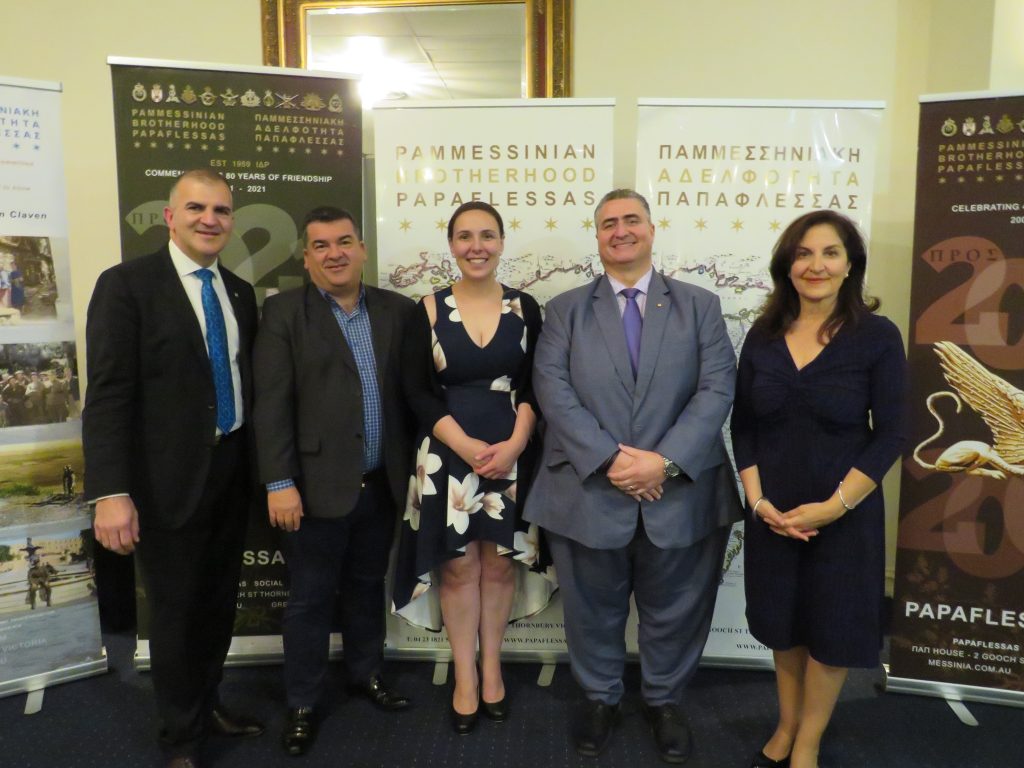
There were plenty of high-profile Messinians present at the dance from Mikakos’ herself to Pandazopoulos from Gargaliani, who heads Parks Victoria, Bishop Evmenios of Kerasounda whose father was from Messenia initially, and PRONIA President Kris Pavlidis, from Kalamata on her maternal side.
“So many prominent Greek Messinians,” I marvelled.
“It must be reflective of the size of the Messinian migration,” Mr Pandazopoulos said.
Asked how many Messinians there are in Victoria, Paul Sougleris started doing rough calculations. “In the 1970 earthquake fundraiser there were 40,000. Many of them have died but let’s say that there are still 10,000 still left around and let’s multiply their kids and there would be around 500,000 though many of them would have intermarried,” he said.
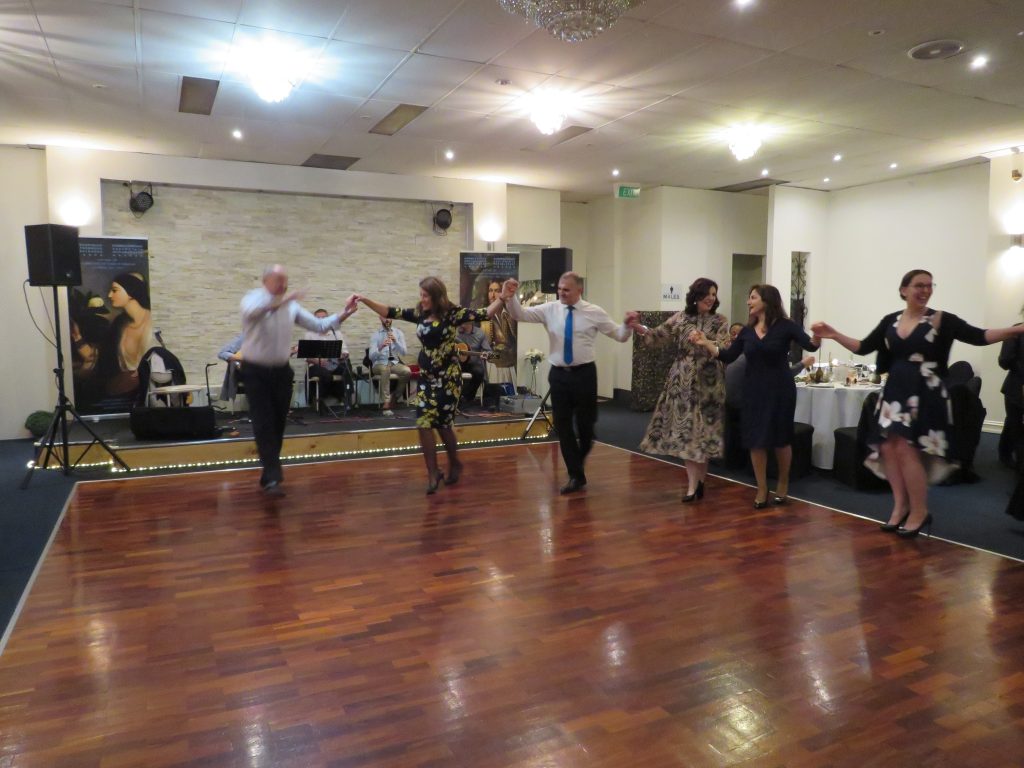
When it comes to soldiers who fought in Kalamata, the numbers are much clearer, and these are clearly documented in Mr Claven’s “Grecian Adventure”, also launched at the dinner dance. Addressing the attendees Lee Tarlamis MP said Mr Claven is a genuine Philhellene “who has proven himself as such”.
With so much talk of the newly named Greek street, the conversation turned to past victories and Mr Claven’s efforts for the naming of Lemnos Square along with work to restore a respective Australian monument on Lemnos, symbols of Greek-Australian mateship. He has also worked with the Papaflessas Club for the creation of another memorial in Messinia, specifically in Pylos and Methoni.
Inevitably, much of the conversations over dinner turned to the beautiful beaches of Messenia with most of the guests counting days to their next Greek vacation. Will it be Voidokilia or Petalidi beach? “They’re all beautiful,” Ms Mikakos said.
And as we discussed the Battle of Kalamata surrounded by tables of esteemed and highly educated Greek Australians, my mind wandered to the dinner dances of times past when recently arrived migrants – workers on car assembly lines, cleaners and waiters – would save money from catering such dances by rotating kitchen duties between themselves.
Their unruly young kids would chase each other around the dance floor, while teenagers flirted, playing spin the bottle in some secluded corner, and inevitably there would be hours and hours of tiring raffles and auctions to raise money for some new building, church hall, association or funds to help some village “back home”. Towards the end (perhaps at around 3am), inebriated men would soar like eagles dancing the zembekia before carrying their sleeping kids home.
People were far more well-behaved at this year’s Papaflessas’ dinner dance than those of the decades before, and the only two kids to be seen were the Consul General’s children and they were very well behaved.
“We don’t do auctions and raffles anymore,” Ms Tsaganas said. “We do try to keep young people involved though by keeping them on the stage doing the MC work.”
Carli Gotsis, one of the young adults MCing the event, told The Greek Herald, “We’ve got a few youth in the community and everyone tries to help as much as we can,” she said.
“We have some specialised events for younger people but it has been difficult in the past years due to COVID but we want to focus on youth events further down the track, and do what we can to make people aware of the culture of Greece.”
The suggested mural at Kalamata Place may draw a younger audience, but it will also be a tribute to days long gone and a legacy left behind which needs to be acknowledged and carried on by the likes of Kali and Taxiarchoula and the new batch of Greek Australian Messinians holding the Papaflessas fort.

